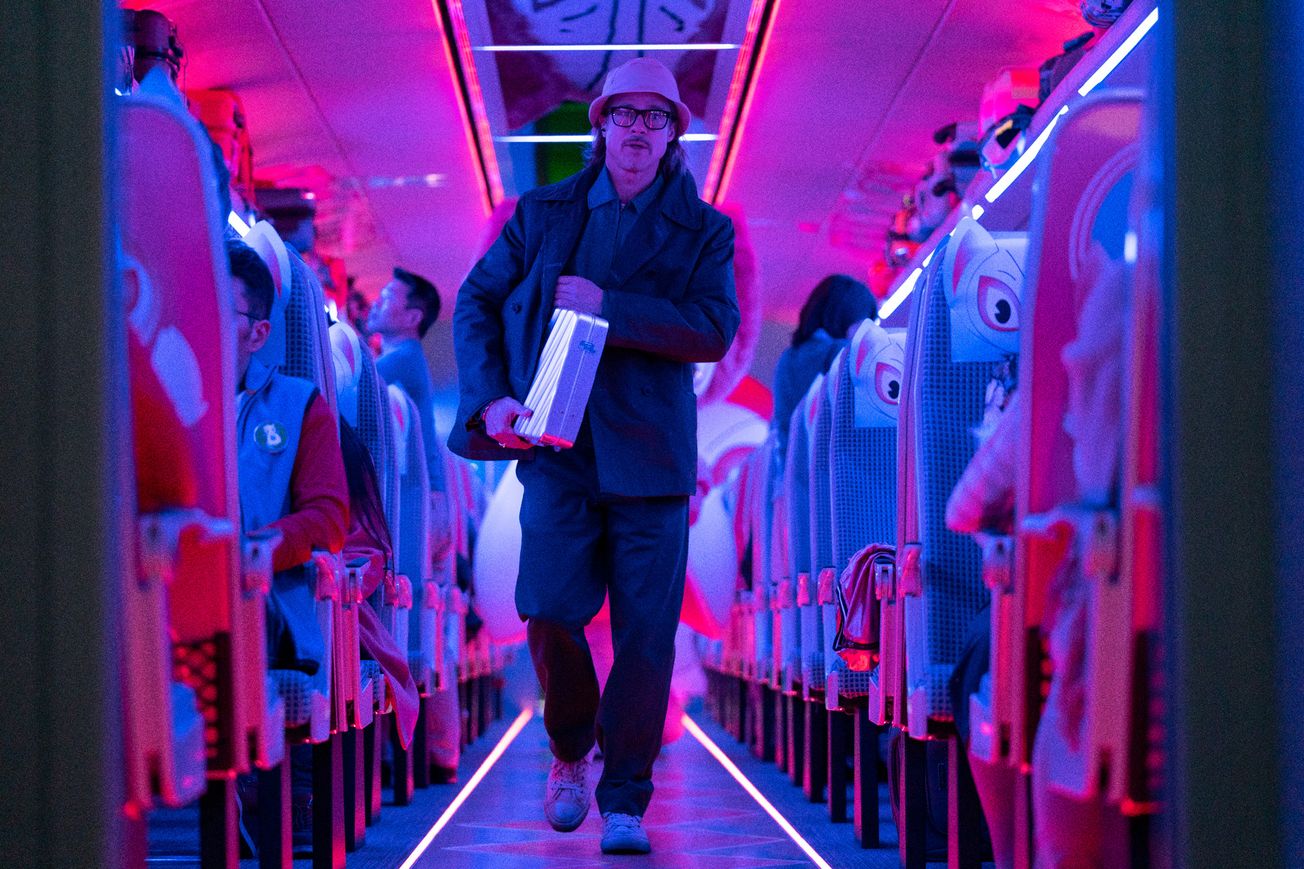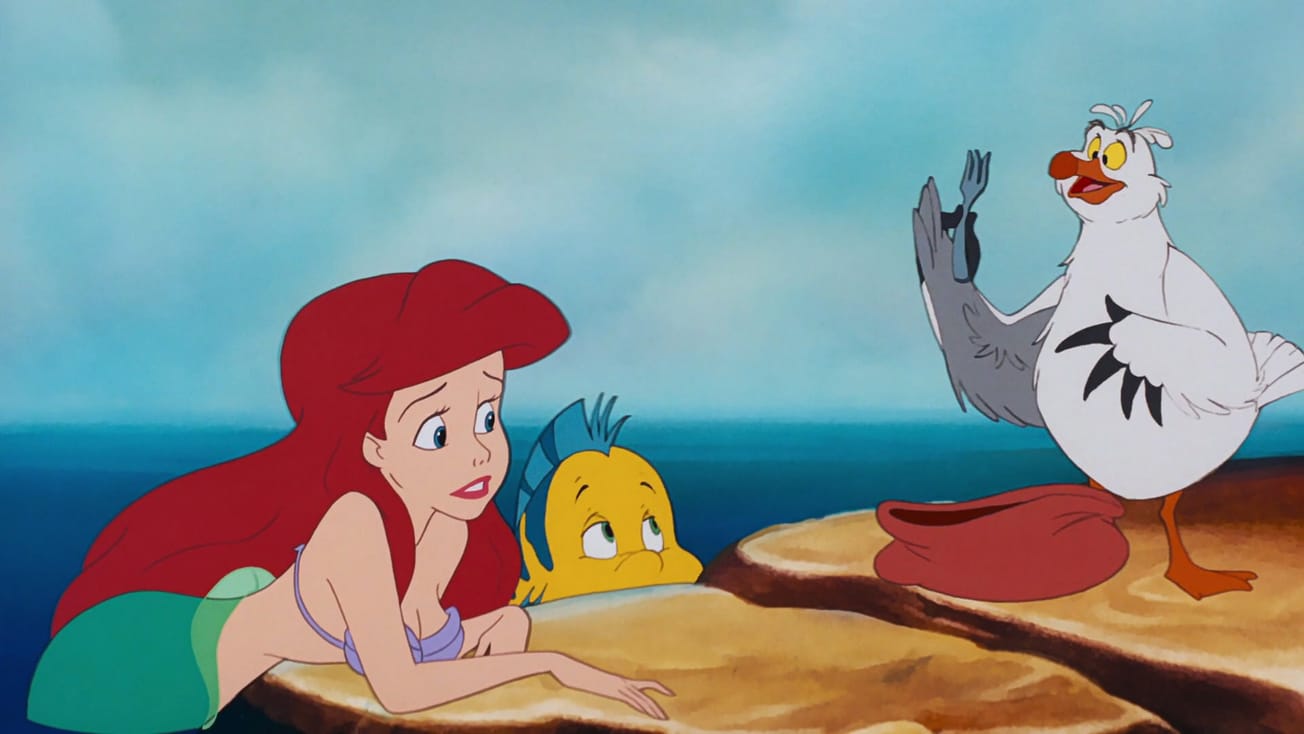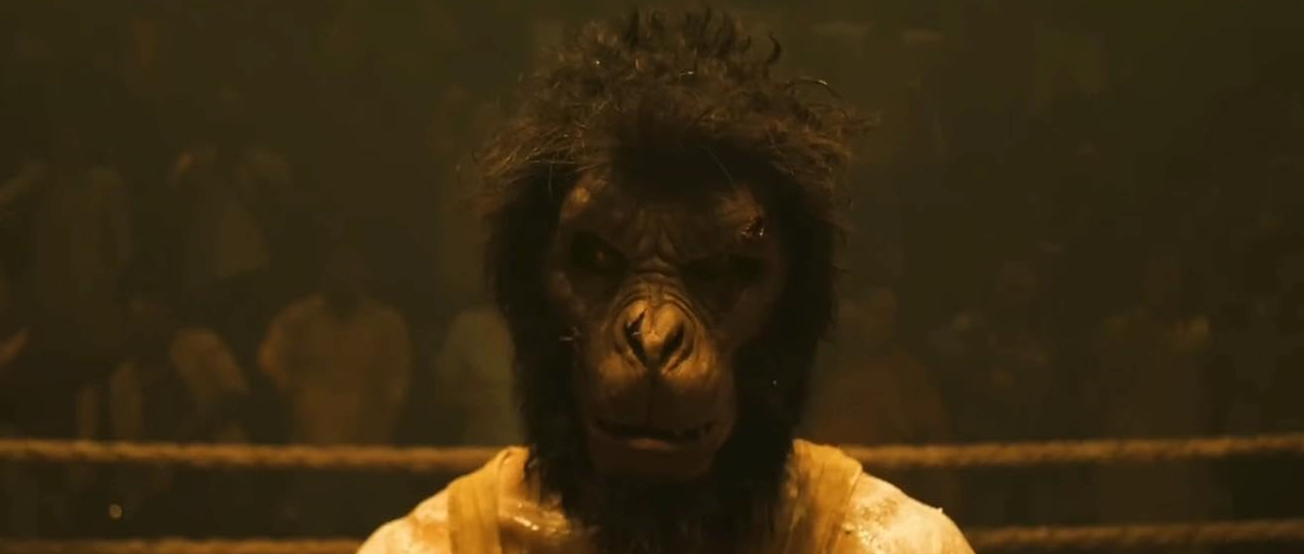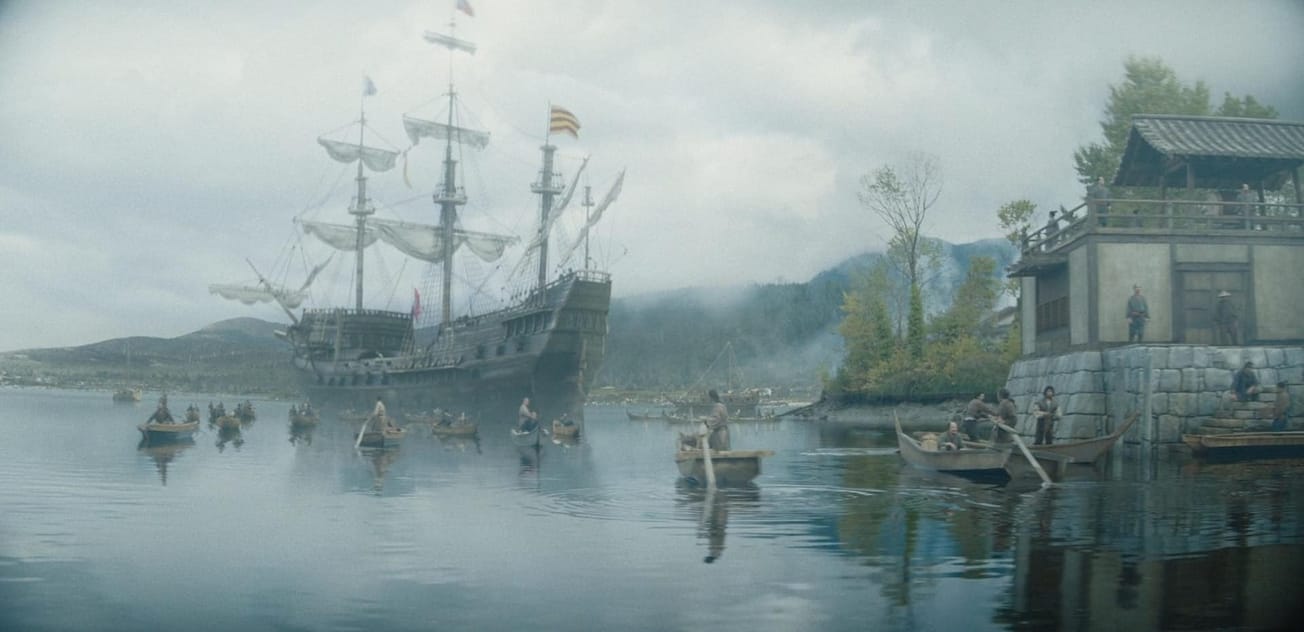By Esia Forsyth, Third Year, English
Against the backdrop of modern-day Japan and directed by David Leitch, ridiculous and riotous violence ensues in Bullet Train (2022) as we meet characters one by one through splashy introductory title cards evocative of Tarantino. As the title 'Bullet Train' suggests, two hours and six minutes of action set solely upon a narrow, high-speed vehicle paves the way for a claustrophobic collision course of jam-packed excitement, hurtling its way toward an ominous future.
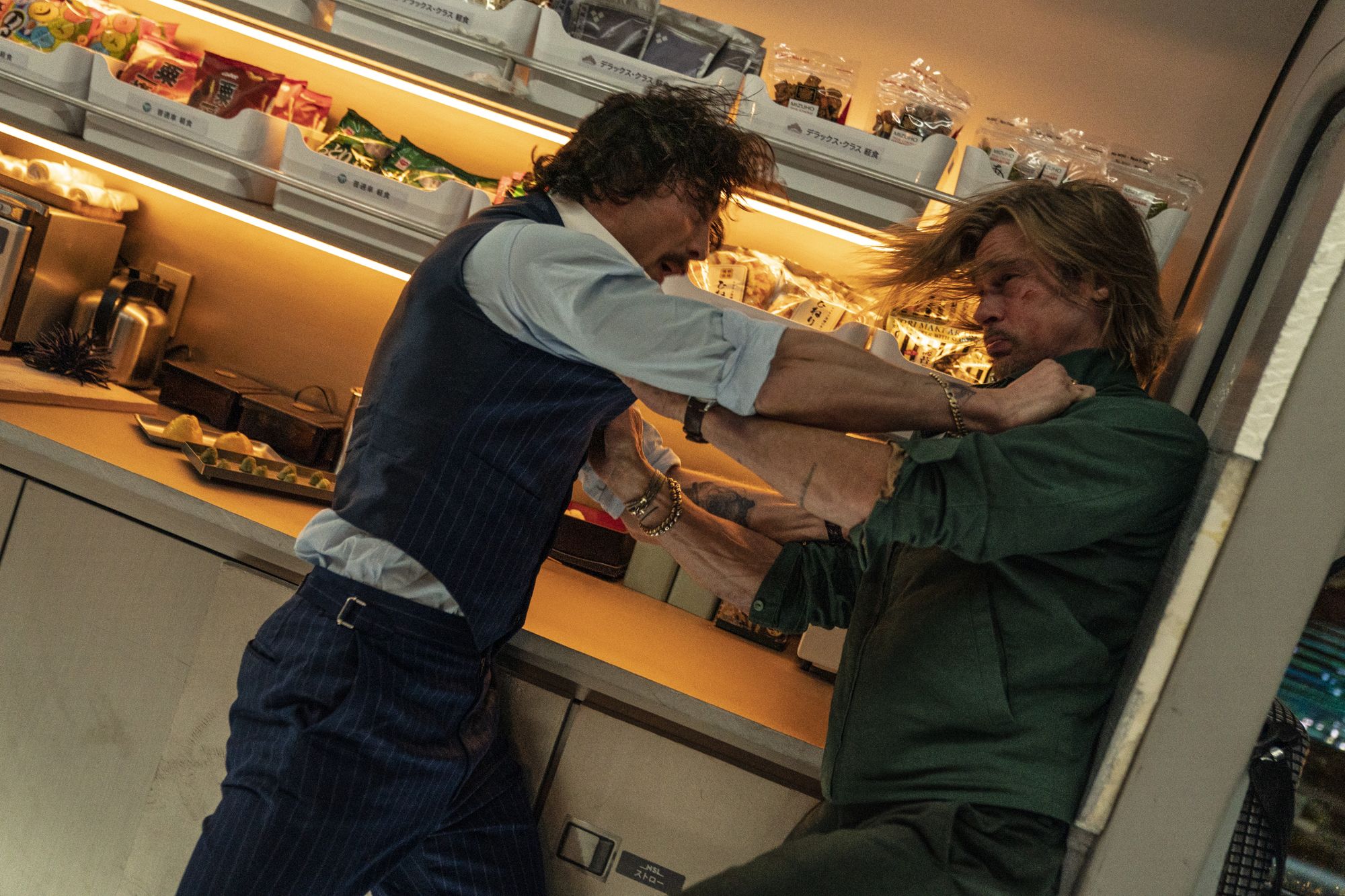
The plot begins with Brad Pitt as ‘Lady-Bug’, an unlucky assassin on a seemingly simple mission to retrieve a briefcase from a highspeed train on its way to Kyoto. The pursuit is soon complicated by a collection of psychopaths, serial killers and hitmen, all set on a strangely similar mission.
Significantly influenced by Deadpool 2’s (2018) director Leitch, the audience is unsurprisingly submerged into a world of gory combat by virtue of the characters’ identical goals. The cartoonish style of the action scenes echoes the anime influences of the train, with one of its distinctive cars dedicated to the fictional anime character of Momomon.
Whilst these artistic choices periodically transition between flashing blue and pink colour palettes reminiscent of Tokyo lights, the attempt at a homage to culture appears to fall short, seemingly more of an aesthetic convenience than a serious consideration of Japanese culture. The rich world of Japan is skated over, even at the level of production, as filming of the movie entirely took place in L.A.
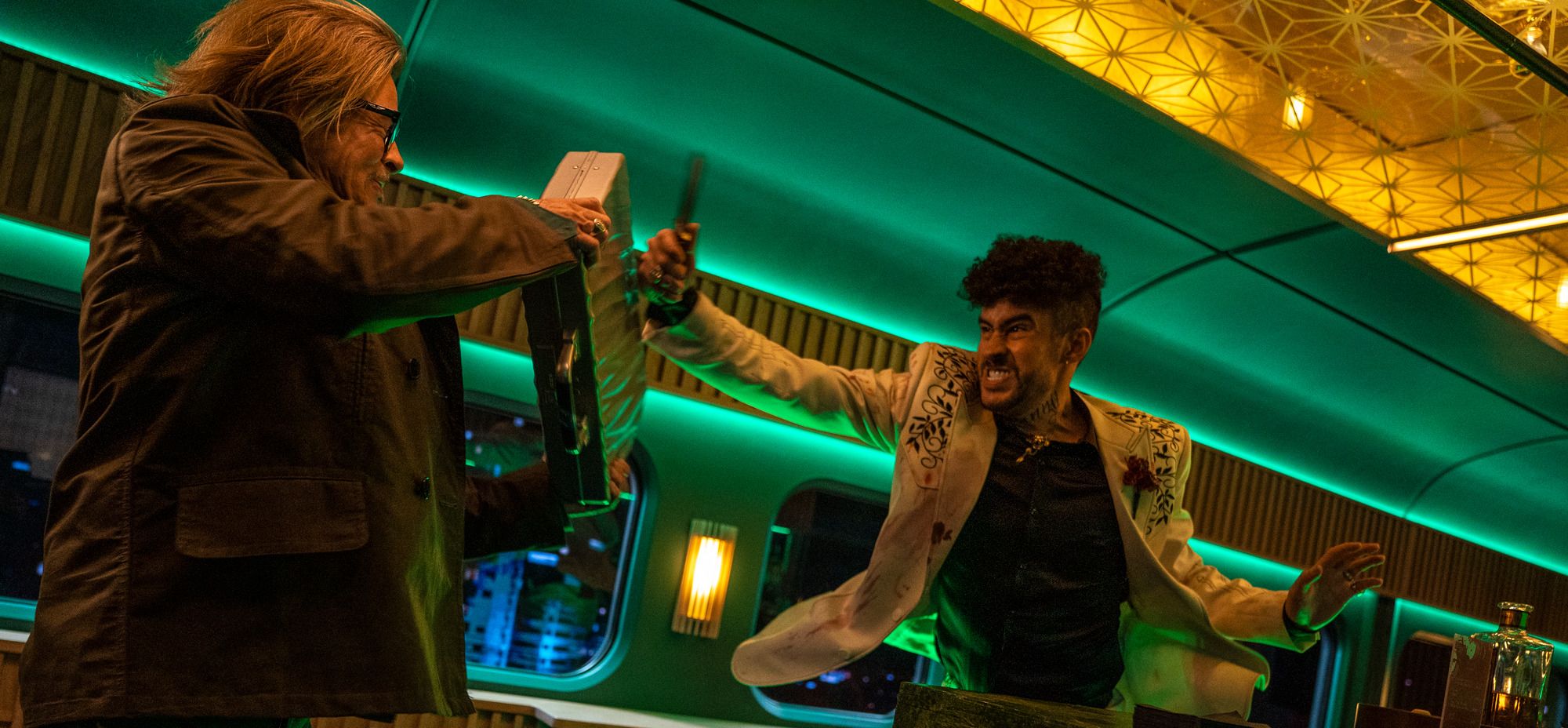
Whilst we are introduced to two fairly major characters of Japanese descent (Andrew Koji and Hiroyuki Sanada), these are the sum total of East Asian actors who significantly appear throughout the movie, despite otherwise revolving around the setting of Japan. The heavy-handed use of Japanese culture is limited to style, failing to achieve any substantial celebration of the culture within the movie.
Whilst, superficially, it appears that the setting is integral to the movie, this story could have occurred within any other country in the world and had the exact same outcome.
Despite these shortcomings, Bullet Train is filled with exceptional visuals as the tumultuous journey continues towards sunrise. Moments of comedy arise in homoerotic Channing Tatum cameos, deathly battles interrupted by respectful waitresses and multifunctional Japanese smart toilets.
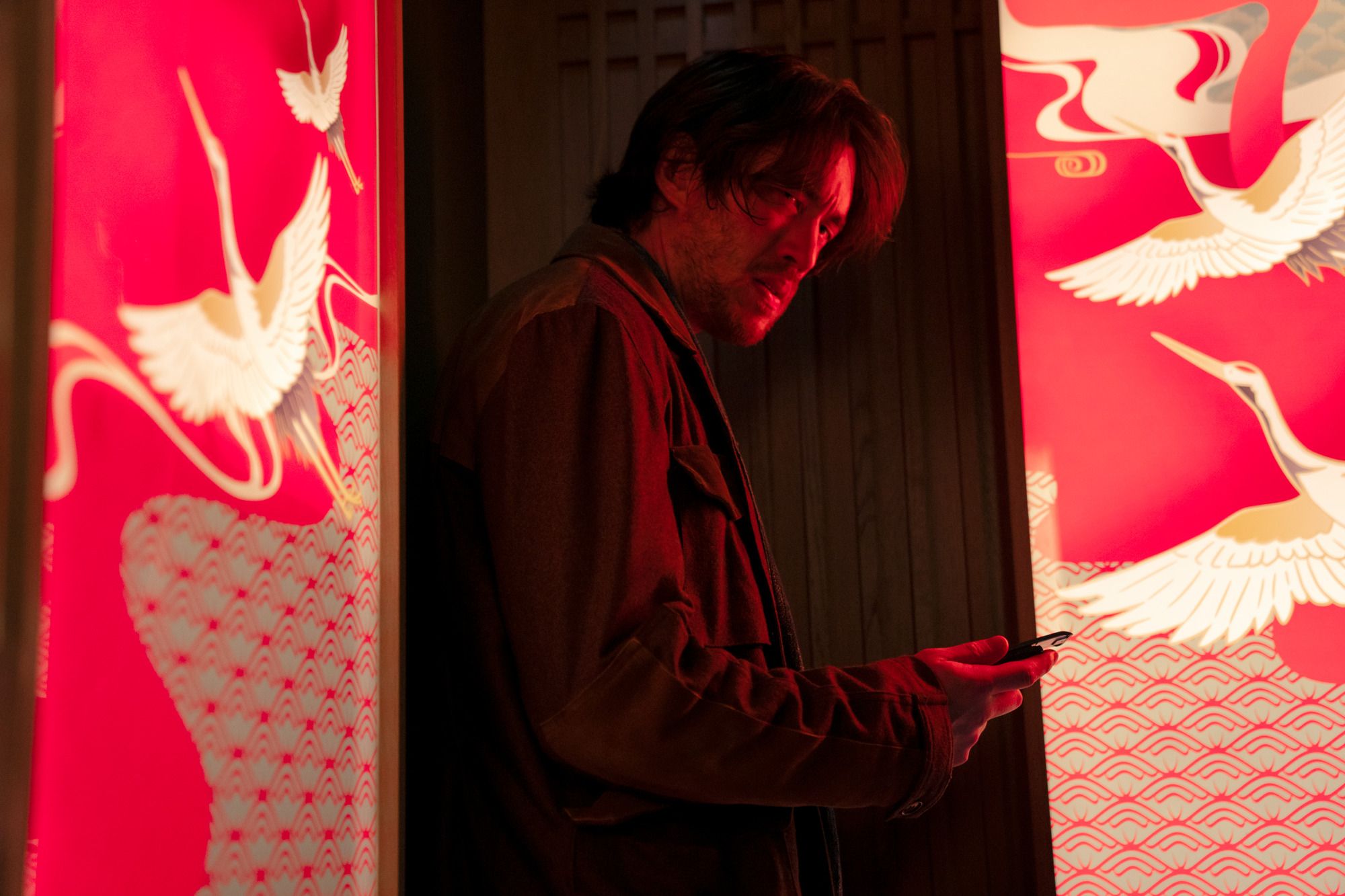
Fruitily named hitman brothers, Tangerine (Aaron Taylor-Johnson) and Lemon (Tyree Henry) provide a witty repartee with surprisingly detailed knowledge of Thomas the Tank Engine that forms a running source of entertainment.
Even with the script's occasional tendency to flog a dead horse in lieu of creating fresh comedy, the superb acting from each famous face – such as Bad Bunny, Joey King, Sandra Bullock, and Zazie Beetz – elevates the lines from laboured to suave.
To flip on and watch as a traditional action thriller, this ride full of plot twists, tongue-in-cheek monologuing, dry British humour, and surprisingly touching friendship is the perfect Friday night choice.
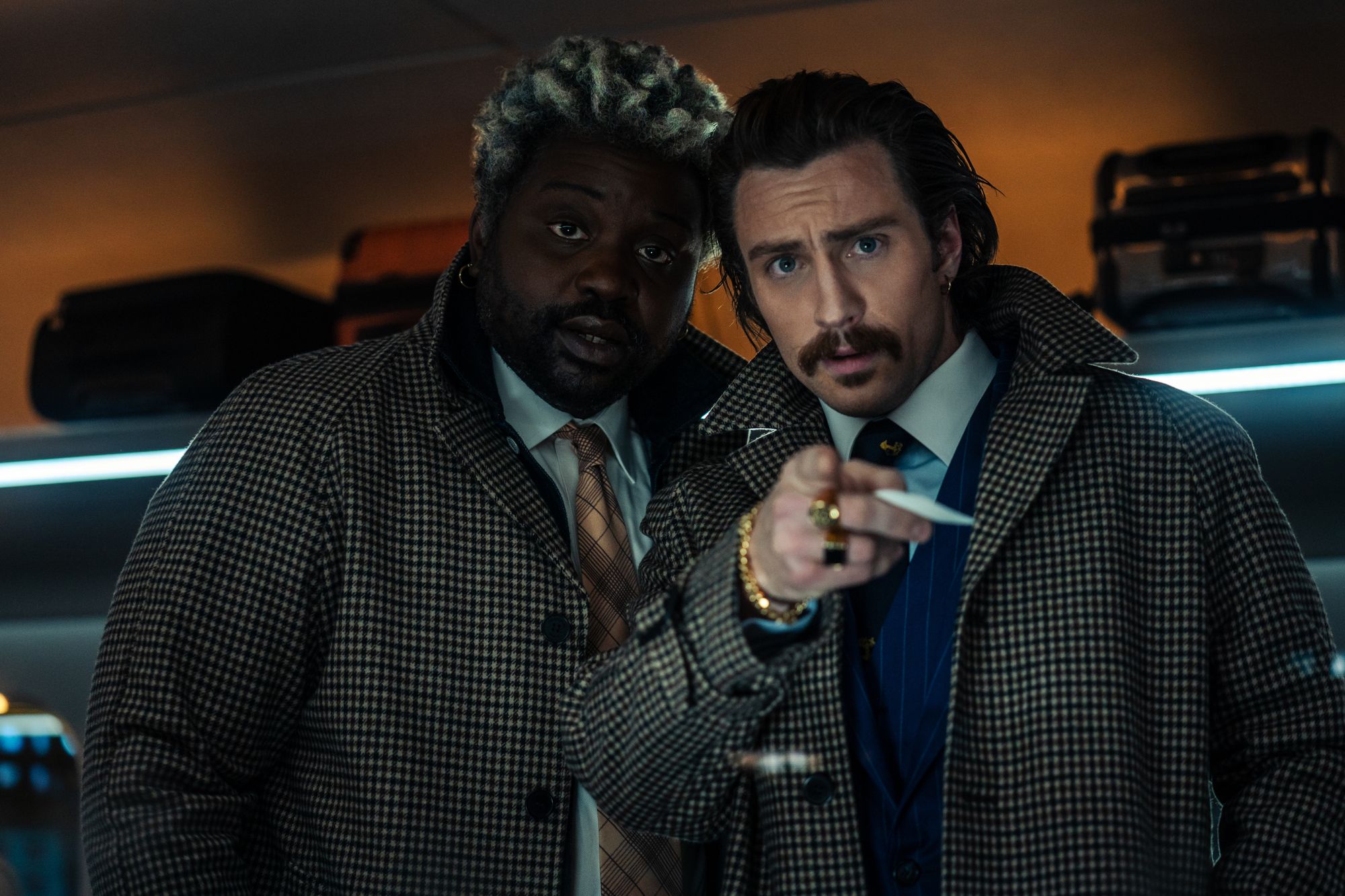
Within a world of exciting and nuanced performance, Bullet Train remains a highly watchable and stylistically varied film that caters for the appetite for gleeful violence.
Beneath the flashy Japanese symbols and memorable Kyoto skylines, however, there perhaps lies an over-adoption and romanticisation of an aesthetic rather than culture, the film failing to develop the already successful dark-comedy genre.
Featured Image: IMDB
What is your favourite dark comedy film?

